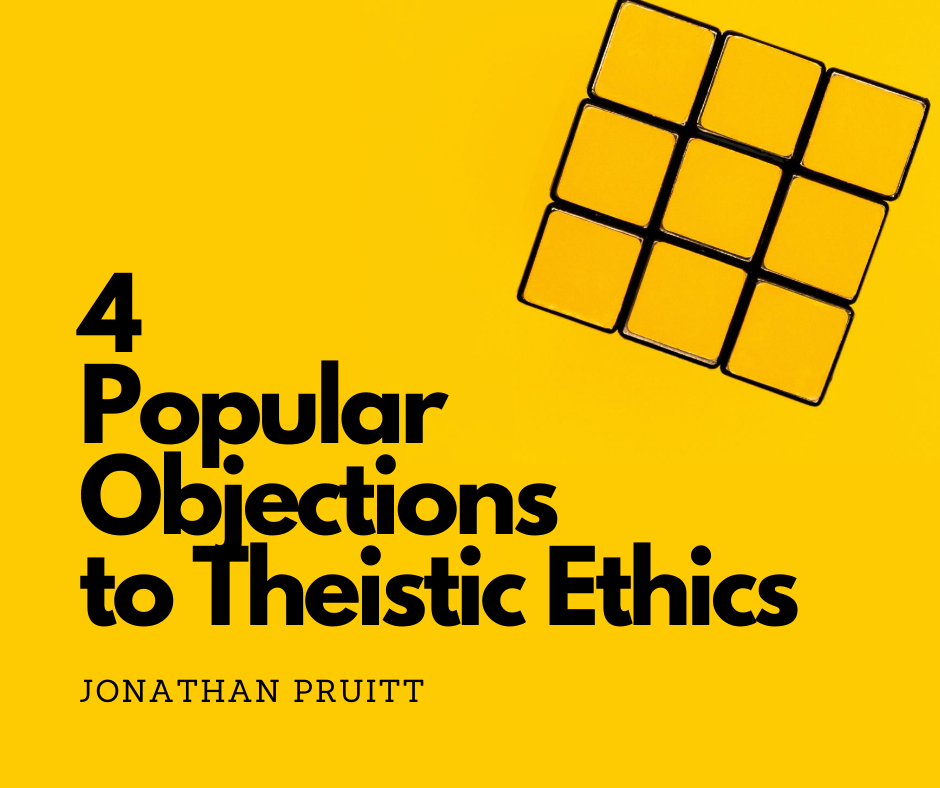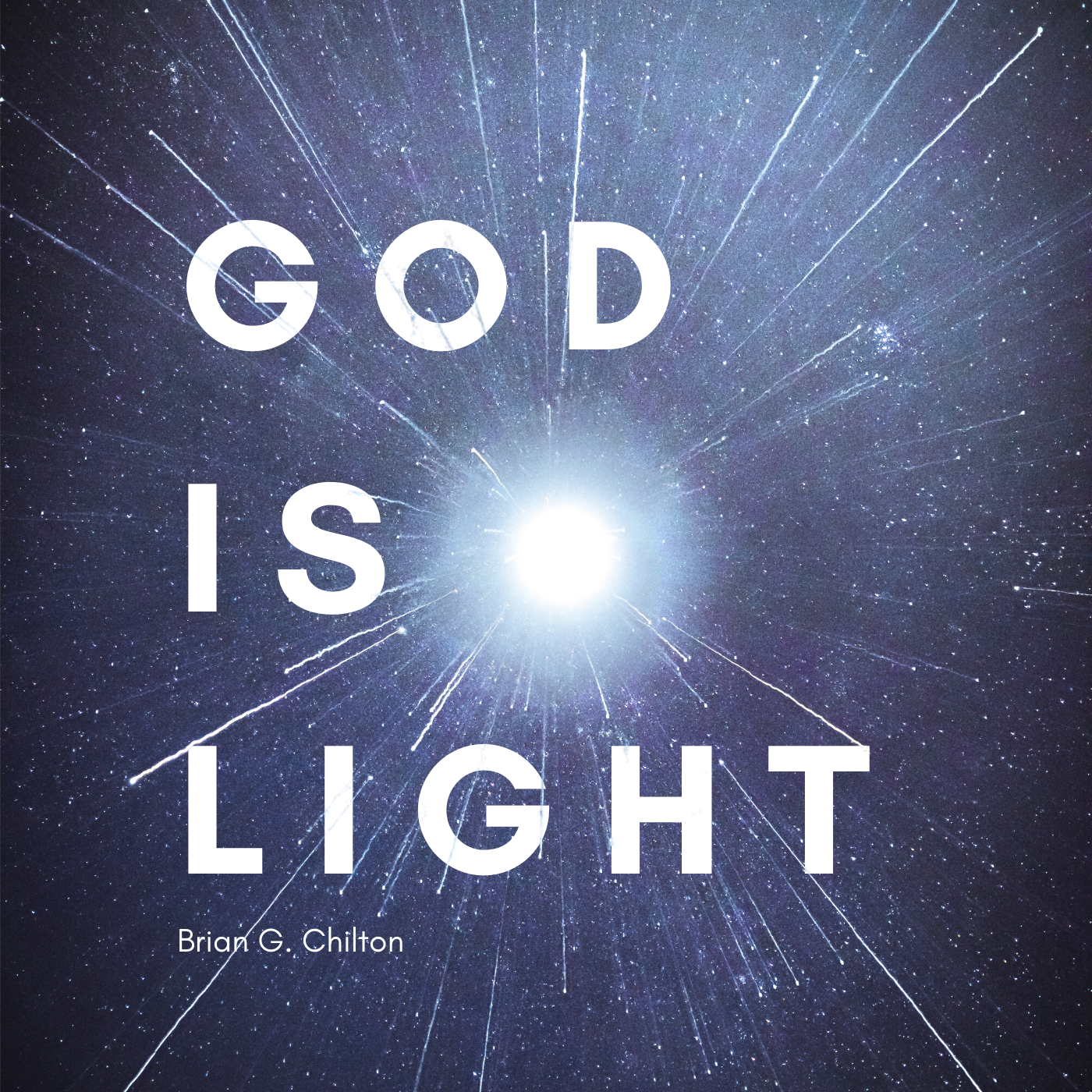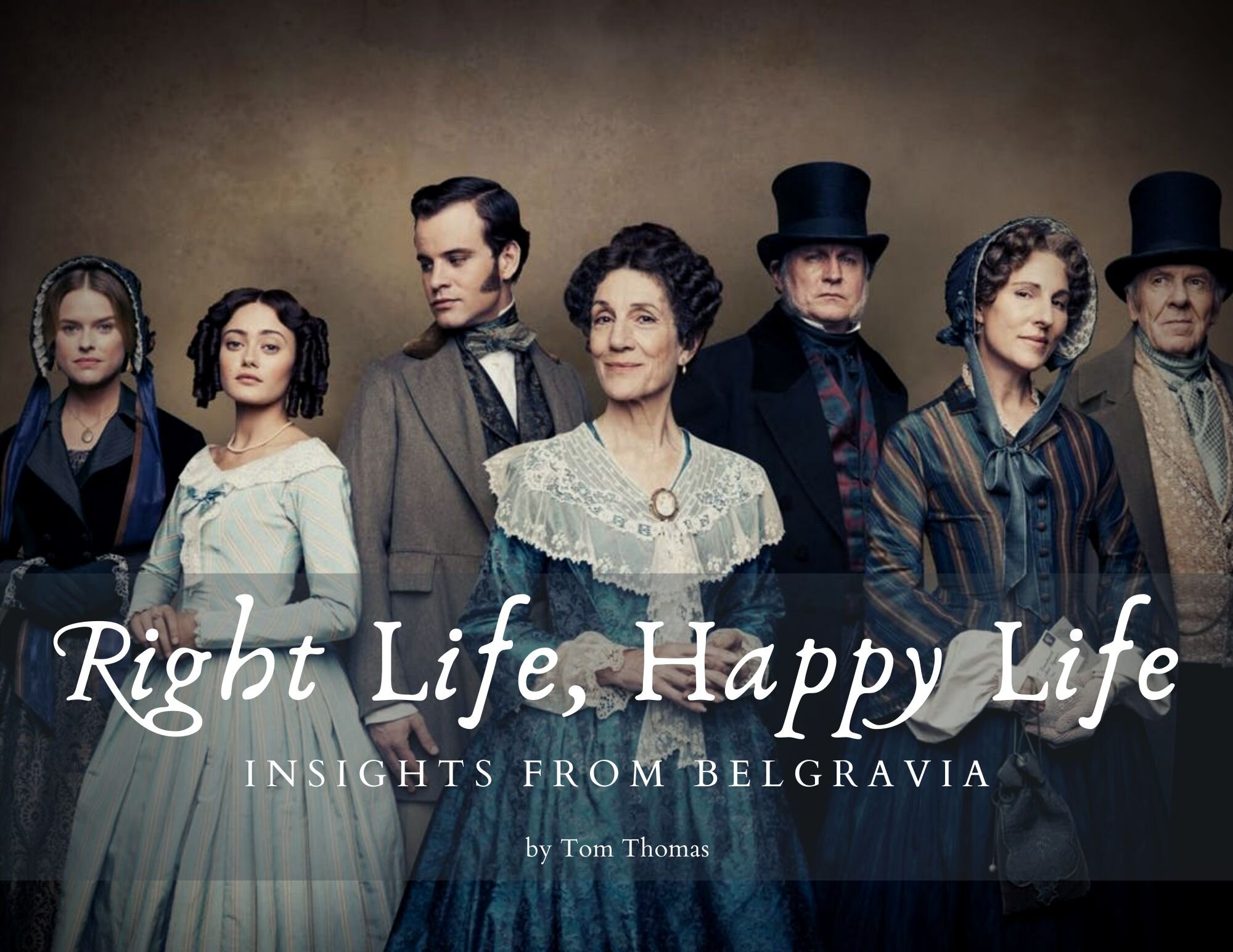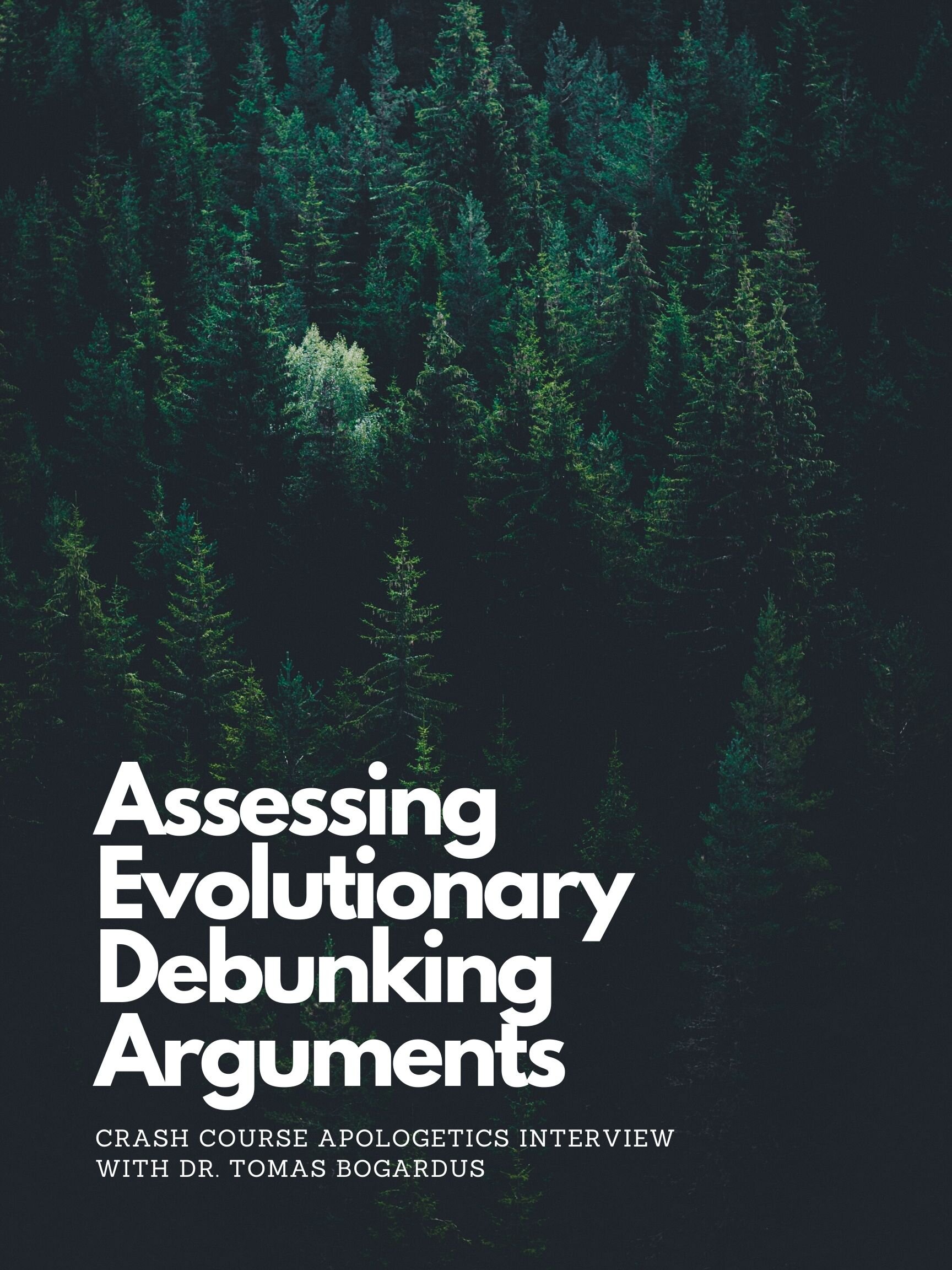I’ve had the opportunity to teach ethics and philosophy as an online adjunct for about five years now. During that time, I’ve noticed that students often express similar concerns about the moral argument specifically and theistic ethics in general. Here are the four most popular objections to theistic ethics I’ve encountered and a brief reply.
1. People can be good without God. Theistic ethics says that people need God to be moral, but there are many good atheists. So, theistic ethics must be incomplete or incorrect.
First, it will help to settle what is meant by “good” atheist in this context. Most of the time, when we say Ms. Smith is a good person, we just mean it in a relative sense. Relative to other people, Ms. Smith is a good person. She is kind to others, she donates to charity, she is generous, and so on.
This objection usually comes from a misunderstanding of the implications of one of the premises of the deductive moral argument. That argument goes like this:
1. If objective moral values and duties exist, then God exists.
2. There are objective moral values and duties.
3. Therefore, God exists.
A correct implication of (1) would be that morality requires God and, therefore, one needs God to be good. God must exist for there to be morality at all. However, (1) does not imply that atheists cannot be good, moral people. All that (1) implies is a view about moral ontology, and not a view about what it takes to be a moral person. Nothing in the moral argument suggests that an atheist cannot be a moral person. An atheist is someone who disbelieves in God. Disbelief of this sort does not make it impossible to be a good person. God can be the ground of morality and atheists can be good people. These are not contradictory statements.
Some may think that while the moral argument doesn’t say that one must believe in God to be good, the Bible nonetheless does. So, if one is committed to a theistic ethical theory that affirms the teaching of the Bible, then she is, at the end of the day, saying one must believe in God to be good. However, I am not convinced that is what the Bible teaches. A key verse in this debate comes from Romans 3:10 “…there is none righteous, not even one.” Often, the verse is interpreted to mean that, apart from salvation in Christ, there are no good people. However, “righteousness” here has a specific, forensic or legal meaning.[1] A better gloss might be “no one is justified, not even one.” In this case, at least, the Bible has in view something different than what me mean by “good person.”
Some may think that the Calvinist doctrine of total depravity stipulates that atheists cannot be good people. But this is not always the case. According to one theological dictionary,
Total depravity refers to the extent and comprehensiveness of the effects of sin on all humans such that all are unable to do anything to obtain salvation. Total depravity, therefore, does not mean that humans are thoroughly sinful but rather that they are totally incapable of saving themselves.[2]
Total depravity only says no one can earn that forensic status of righteousness.
So, neither the moral argument nor the bible implies that an atheist cannot be a good person or do good things.
2. Theistic ethics is too narrow. Not everyone agrees that God exists, so not everyone could have moral knowledge. We need an ethical theory that’s accessible to all.
This might be the most common of these four objections and it leverages an important concern: the availability of moral knowledge. As a preliminary reply, we can point out that this sort of critique would work for any ethical theory. We could argue against the utilitarian: Well, not everyone believes that the good is identical to utility (or pleasure), so not everyone could have moral knowledge. Or against the Kantian: Well, not everyone agrees with the categorical imperative, so not everyone could have moral knowledge. The objector might say that in both those cases, one gains moral knowledge through common sense or introspection. These modes of investigation are available to all people, while access to divine commands are not.
There are three vital points to make in response. First, if some ethical theory implies that moral knowledge will be inaccessible, that does not entail it is false. It may be a problem for that ethical theory, but problems can be addressed. Plato’s ethical theory is a good example of this. Morality is grounded in the Forms, but from our present position and with our current abilities, we cannot access the realm of the Forms. Thus, Plato proposes some alternative means through which such knowledge can be attained, including his ambitious doctrine of pre-existence. Possibly, Plato’s ethical theory is correct and moral knowledge just is hard to come by.
Second, most versions of theistic ethics, despite the impression of many, say that moral knowledge is widely accessible, and by means like common sense and introspection. Clearly, this is the case with theistic natural law theories, but it is also the case for divine command theory, which is usually the target of this sort of objection. If we consider the sort of divine command theory offered by David Baggett and Jerry Walls in Good God, we can see how this is so. They say that God’s commands are not arbitrary, but flow from his nature. God’s nature, in their view, is identical to the good. Therefore, one can infer, purely based on reason and her implicit knowledge of the good, what is right and wrong in many cases and, thus, what God has likely commanded. For example, given these things, one should easily see that it is wrong to murder, even if she doesn’t know that God has prohibited murder. In this way, someone has access to much of moral knowledge without access to special revelation; a point consistent with the teaching of Romans 1.
Third, from the Christian perspective, God has revealed himself dramatically and publicly in the person of Jesus Christ and there is sufficient evidence of this (ably demonstrated by scholars like Gary Habermas and Michael Licona). That some people find the evidence unconvincing does not imply that evidence is, in fact, insufficient. If the Christian perspective is correct, then God has provided direct, sufficient, and accessible evidence for his moral authority and the authenticity of his commands through Jesus and his resurrection.
3. The meaning of the Bible is unknowable. No one really knows that the Bible teaches. It’s all open to interpretation and we don’t know what it originally said anyway.
When I run across this objection, students often give one of two motivations for their view. First, they often say something like this: “The Bible has been copied so many times! All we have is a translation of a copy of translation. It’s been copied and translated so many times, who knows what it really said at the start!” This concern represents a widely held misunderstanding of the origin of our modern Bibles. Our modern Bibles are not copied from other translations; they are copied from the original languages. Some pieces of these texts even date to the second century for the New Testament and the seventh century B.C. for the Old Testament. The source texts for the modern Bible are early and they are in abundance. Through careful study, textual critics of the New Testament conclude that what we have now accurately represents over 99% of the original manuscripts. So, we know with a high degree of confidence what the books and letters of the Bible actually said.
The other motivation seems to come from a general skepticism about the clarity of the Bible. Certainly, there are unique interpretive challenges when it comes to the Bible. It was written in another time, place, and culture. Some passages remain deeply debated and mysterious. However, much of the Bible can be understood on its face, in a straightforward way. This is true in the case of the Bible’s central ethical teaching, presented by Jesus himself: “Love the Lord your God with all your heart and with all your soul and with all your strength and with all your mind” and “Love your neighbor as yourself” (Luke 10:27). This command in particular does not seem especially hard to understand or interpret. On many central ethical issues, the Bible is perspicuous. But even in those cases where the Bible presents readers with an interpretive challenge, one can still often discern the correct meaning with careful, methodical hermeneutics. Therefore, we do know what the Bible originally said, and we can know what it originally meant.
4. The Bible is unenlightened. The Bible is full of bronze age ethics that we know are immoral now. Theistic ethics needs to be discarded in favor a more modern ethical theory that fits with a modern perspective.
My aim here is not to respond to all of the specific ethical issues in the Bible, but I will offer a general reply in two directions. First, in defense of the Bible, it is very likely that for many of the difficult passages, we are simply misreading them. The Bible can often be read and understood at face value, but not always. Not infrequently, our modern assumptions distort our reading and understanding of the Bible. A possible example of this comes in the Conquest of Canaan narratives. In the ancient world contemporary to the Conquest, it was common to exaggerate one’s victory over the enemy. Language of total destruction of cities, including its citizens, was often used, when it is clear from the surrounding context that such cities were not utterly destroyed. One example of such a text comes from Joshua 10:40:
Thus Joshua struck all the land, the hill country and the Negev and the lowland and the slopes and all their kings. He left no survivor, but he utterly destroyed all who breathed, just as the Lord, the God of Israel, had commanded.
Paul Copan notes of passages like this:
Joshua’s conventional warfare rhetoric was common in many other ancient Near Eastern military accounts in the second and first millennia BC. The language is typically exaggerated and full of bravado, depicting total devastation. The knowing ancient Near Eastern reader recognized this as hyperbole; the accounts weren’t understood to be literally true.[3]
It may be that similar interpretative issues exist for all the ethically difficult passages in the Bible. However, that is unlikely to be the case.
Second, it would be rather strange if the moral vision of the Bible comfortably fit our own. That some parts of the Bible cause us discomfort suggests that the Bible is not a mirror for our own views or some pliable clay to be shaped to our own liking. Rather, it suggests that in the Bible we encounter a moral perspective that is not our own. It belongs to someone else, even if we have adopted it in some measure.
In The Problem of Pain, C.S. Lewis wrote this:
Divine "goodness" differs from ours, but it is not sheerly different: it differs from ours not as white from black but as a perfect circle from a child's first attempt to draw a wheel. But when the child has learned to draw, it will know that the circle it then makes is what it was trying to make from the very beginning.
Lewis argues that our moral knowledge is not exactly correct. Our knowledge of the good is not univocal, but analogical. It’s off by some margin of error.
If morality is objective, this is what we should expect. If morality was made in our image, a mere human convention, then moral truth should cause us no discomfort or distress. But if morality comes from without and not within, then so long as our moral vision is imperfect, there will be some incongruence between what is actually the case and what we merely believe to be the case. That’s exactly the experience we have when reading the Bible. Significantly, though, this dissonance runs in multiple directions. The wrath of God on display in the Bible may make us shudder, but the Bible also teaches that we should love our enemies, that we should give without withholding to the poor and destitute, that we should love our neighbors as ourselves. This incredible calling sounds its own discordant note in our modern, Western minds. The horizons of our moral vision are widened by the Bible. An effect that should come as no surprise if in it we find an ethic from someone else.
[1] Moo, D. J. (1996). The Epistle to the Romans (p. 203). Grand Rapids, MI: Wm. B. Eerdmans Publishing Co.
Here’s a fuller comment from Moo on this passage (including Romans 3:12):
10b–12 The quotations begin with a series of phrases taken from Ps. 14:1–3 (LXX 13:1–3) (Ps. 53:1–3 is almost identical). As is the case with most of the quotations in this series, Paul’s wording agrees closely with the LXX.28 But there is one important difference: where the Psalms text has “there is no one who does good,” Paul has “there is no one who is righteous.” Granted the importance of the language of “righteousness” in this part of Romans (cf. 3:4, 5, 8, 19, 20), the word is almost certainly Paul’s own editorial change.29 It will thus carry with it Paul’s specifically forensic nuance (cf. 1:17). What he means is that there is not a single person who, apart from God’s justifying grace, can stand as “right” before God. This meaning is not far from David’s intention in the Psalm, as he unfolds the myriad dimensions of human folly.
Here is what Kruse says in the Pillar commentary on Romans:
Paul’s purpose in listing these quotations is to say that as a people Jews are no better than Gentiles. Paul would certainly know of the many righteous persons spoken of in the OT, not least Abraham, to whom he refers in the next chapter (4:1–25). However, it must be said that such ‘righteous’ persons are not the morally flawless, but those who have responded with repentance to the goodness of God. Not one of them would have been declared righteous by God because of their peerless behavior. Thus Paul’s conclusion that follows in the next verse stands.
Still, some Calvinists, like R.C. Sproul, seem to understand total depravity and the thrust of Romans 3:10-12 to be teaching that only Christians can do good things. Sproul says this in his commentary on this passage:
Is Paul saying here that unless a person is a believer in Christ, he will not ever do a good deed? That is precisely what it means. It may seem outrageous, but nobody ever does a single thing that is good, we are so corrupt that our sin infects even the best of our deeds.
However, even in this very strong view of the implications of the passage, Sproul clarifies that Paul here is using “good” in a technical sense. A good deed consists in right and action and right motivation. Only Christians can have the right sort of motivation, pleasing God, so only Christians can do what is good. But if Paul has this technical sense of “good” in mind, that does nothing to undermine the idea that atheists or other non-Christians can do “good” things in the everyday sense of that word.
Sproul makes the dubious claim that actions are either motivated by selfishness or a desire to please God. It seems obvious from human experience that many actions are motivated by a sincere concern for others, without explicit reference to God (that this is appropriate is perhaps evidenced by the fact that Jesus says that there are two commands that sum up the law: Love of God and love of neighbor. cf. Matt 22:40). Further, even if my actions are motivated by a concern for my own interests, that does not entail that they are not good actions. If we suppose, for the sake of the argument, that Bill Gates, an atheist, works on eradicating malaria because it brings him satisfaction, the fact that he is the sort of person that finds satisfaction in curing malaria rather than spreading it is an obviously good moral quality. So, it seems to me, that Sproul’s binary understanding of moral motivation should be rejected.
[2] Grenz, S., Guretzki, D., & Nordling, C. F. (1999). In Pocket dictionary of theological terms (p. 37). Downers Grove, IL: InterVarsity Press.
[3] Paul Copan, Is God a Moral Monster?: Making Sense of the Old Testament God, vol. 1 (Baker Books, 2011), 171.






































































